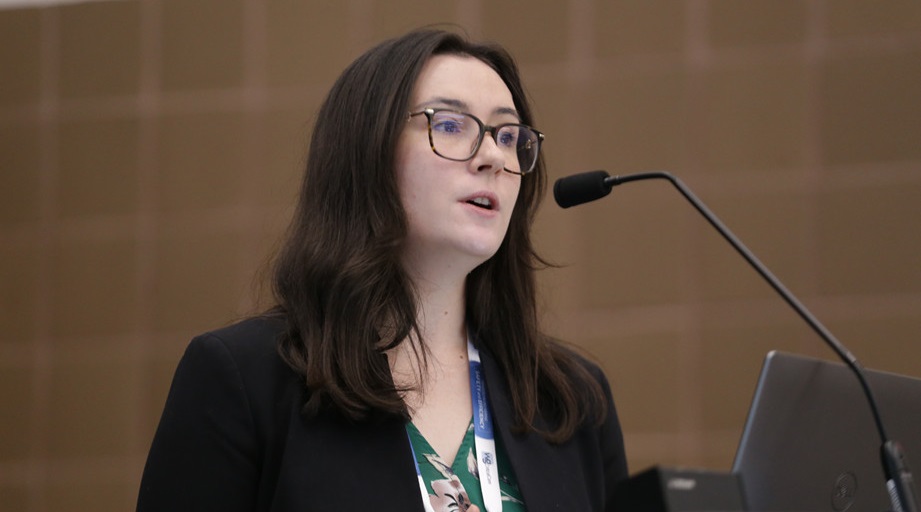
Pharmacists with a passion for ID pharmacy have multiple options for pursuing the specialty, whether as a clinician, telehealth practitioner, manager, or educator, said presenters at the Sunday Midyear Clinical Meeting & Exhibition session Infectious Disease Pharmacists: Working Outside the Box.
Session presenter Bradley Smith’s professional ID pharmacy path began in 2018, when he recognized the need to broaden the local availability of HIV pre-exposure prophylaxis (PrEP).
“Back in 2018, we didn’t have a PrEP program,” said Smith, who is a clinical pharmacy specialist at Grady Health System in Atlanta, Georgia. “With Atlanta being a huge hub for HIV infection, we decided that we needed to do something.”
The clinic’s initial staff consisted of Smith, a physician, and a medication access coordinator. Six years later, the clinic remains in operation with additional staff, including a program manager, nurse practitioner, community health workers, and patient navigators.
Smith, who moved on from the clinic last month, said his main role was to handle patient intake (virtually or in person), confirm initial laboratory values, and follow up with patients and physicians as needed about clinical concerns and other issues.
He said that through August 2024, a total of 3,570 people had been referred to the clinic, and 1,358 had started using PrEP. In August, 728 people were actively taking PrEP, with 557 using a daily oral regimen and 171 using a long-acting injectable cabotegravir/rilpivirine regimen. Smith said more than 200 patients have since started taking the injectible PrEP formulation.
The Centers for Disease Control and Prevention recommends that clinicians prescribe PrEP to anyone who asks for it and offer each patient the medication regimen and route of administration that best meets that person’s needs.
Smith noted that each patient’s need for PrEP can vary depending on exposure risks and life circumstances — factors that clinicians need to consider as they work with their patients.
“We know that PrEP is not necessarily a life-long thing for patients,” he said.
Smith also practices ID pharmacy through the health system’s long-acting antiretroviral therapy (LA ART) program for patients with HIV infection. Most clinic patients receive cabotegravir/rilpivirine by injection every month after they’re established on the therapy.
Smith called LA ART “a fantastic treatment option” for patients who want an alternative to daily oral antiretroviral therapy. But he cautioned that switching from self-administered oral therapy to clinician-administered injections is a major change for patients, who need to be counseled about “what life looks like” on the therapy.
Smith noted that he wasn’t trained as an ID pharmacist, though he gained experience in HIV clinic work during his postgraduate year 2 residency.
Session presenter Stephanie S. May’s path to specialization in ID pharmacy began more traditionally with ID-focused residency programs that included an emphasis on rural health. In addition to working with the Antimicrobial Stewardship Collaborative of South Carolina as a resident, she completed an experiential rotation in rural Tanzania.
“I think all of these experiences definitely informed my passion for working and serving in areas where education and resources are relatively lacking,” said May, who is now an ID and antimicrobial stewardship telehealth pharmacist at Intermountain Health in Salt Lake City, Utah.
By working remotely with the health system’s many small community hospitals, May and her tele-stewardship colleagues help the small facilities better manage antimicrobial use. And the tele-ID service provides remote consultations 24 hours a day, seven days a week, for clinicians who need advice about their patients’ ID concerns.
Intermountain Health’s ID-related telehealth services include infectious disease and antimicrobial stewardship consultations within the health system, educational and quality improvement outreach initiatives outside the health system, and rounding and monitoring for patients receiving outpatient parenteral antimicrobial therapy.
May and colleagues reported in 2023 that the multidisciplinary tele-COVID rounds and tele-stewardship program significantly decreased antimicrobial use and transfers for patients hospitalized with COVID-19 at 17 of Intermountain Health’s small community hospitals. May said during the Midyear session that the intervention resulted in the avoidance of more than 5,000 days of antimicrobial use.
She also described a quality improvement initiative that resulted in a 39% reduction in meropenem days of therapy for patients with no allergic or microbiologic indication for the medication. Projects like these, she said, are “really energizing” for the ID team.
The session also featured a presentation from Christina G. O’Connor, clinical pharmacy practice manager at the Mayo Clinic and assistant professor of pharmacy and medicine at the Mayo Clinic College of Medicine & Science. O’Connor described her leadership role in the organization’s outpatient parenteral antimicrobial therapy (OPAT) program, including activities that support the program and her staff and provide opportunities to expand and innovate.
Lindsey Childs-Kean, clinical associate professor at the University of Florida College of Pharmacy, likewise focused on OPAT as a both clinical service and as part of a learning environment for pharmacy residents and students.
Childs-Kean said she’s always been drawn to teaching, and her current position allows her to pursue that passion as an ID pharmacist — and she urged the session attendees to explore their personal path to success in pharmacy.
“It comes down to your goals,” she said. “What do you want out of your career?”








